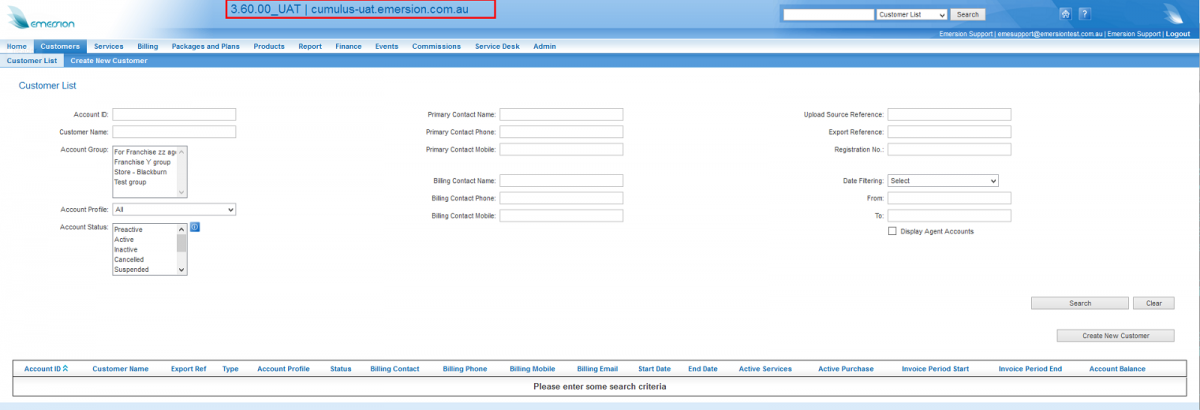Account Management
Contents
Account and Customer Management
In Emersion, you can create different types of accounts for different purposes. The type of account you create determines:
- at what place or level in the Emersion multi-tier hierarchy the account is placed in
- system behaviour
- underlying business rules
- what interface you can use to log in to access the Emersion system
- e.g: Service Provider Accounts use Cumulus but End User accounts use the End User Portal
For these reasons, the account type cannot be changed once it is saved in the system. If you make a mistake, you can either make the account inactive and start again, or request Emersion to delete the account for you. Accounts cannot be deleted via Cumulus.
Creating Accounts
Follow the links below for the type of account you want to create.
Creating an End User Account under a Retail Service Provider Account
Creating a Retail Service Provider under a Wholesale Account
Creating an Agent Account under a Retail Service Provider Account
Account Attributes
Account Attributes define many default settings for your customers. Learn about them at the Account Attributes article.
The Customer List Screen
Regardless of the account type you are creating, the process begins at the Customer List screen. This is the very first screen you see when you log into Cumulus.
It can be accessed at any time by navigating to Customers > List
Organising Accounts
Emersion provides two ways to organise your accounts into groupings. Each method comes with different abilities and features. Click on each of the following articles to learn more about whats possible when you organise your accounts using account groups and account profiles.
Use Account Profiles to apply different events to customers in each account profile
Use Account groups to control which staff can view, edit and access customers in a group.
Troubleshooting Articles
Performing a Manual Account Reconciliation
